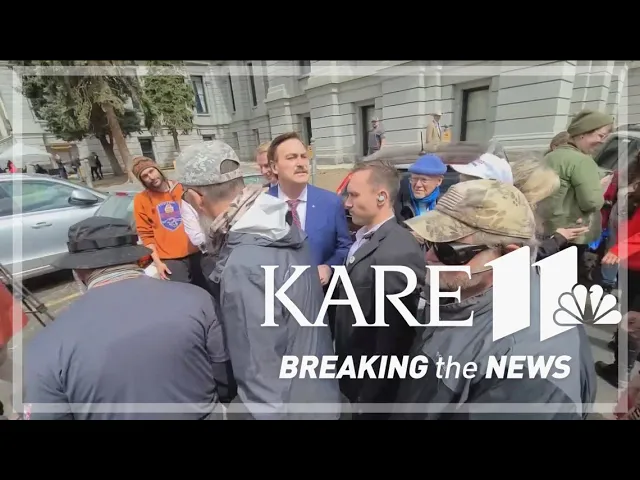MyPillow CEO Mike Lindell’s lawyer admits to using AI to create court document

AI in the courtroom: a daring legal mishap
In a jaw-dropping turn of events that should make every legal professional sit up straight, MyPillow CEO Mike Lindell's attorneys have admitted to using AI to generate court documents in his ongoing legal battle with Dominion Voting Systems. This isn't just another tech-meets-law story; it represents a defining moment in how artificial intelligence is creeping into professional domains where human expertise and accountability are paramount.
Key developments in this legal AI fumble:
-
AI-generated legal fiction: The attorneys filed a court brief containing an astonishing 30 fabricated legal concepts and citations to non-existent cases—all created by ChatGPT.
-
Judicial fury: A Colorado judge threatened disciplinary action against the lawyers until one admitted they had "accidentally" submitted the unvetted AI-generated version.
-
Credibility collapse: This incident damages not only the attorneys' professional standing but further complicates Lindell's already controversial legal defense in the Dominion Voting Systems lawsuit.
When AI hallucinations meet legal obligations
The most troubling aspect of this situation isn't simply that AI was used, but that it was deployed without proper oversight in a context where accuracy and truth are foundational requirements. Legal professionals are bound by ethical standards that include diligent verification of facts and sources. The "we didn't check it" defense reveals a dangerous misunderstanding of how generative AI works and the responsibilities of those who use it.
This isn't merely a technical mishap but a collision between technological capabilities and professional duty. The legal industry has always moved cautiously with new technologies, and for good reason—the stakes in legal proceedings directly impact people's rights, freedom, and financial well-being. The judge's furious response signals how the judiciary views AI assistance without human verification: not as innovation, but as potential malpractice.
Beyond the courtroom: Lessons for every professional
While this example comes from law, similar scenarios are unfolding across professional services. Financial advisors, healthcare providers, and management consultants are all experimenting with AI tools that promise increased productivity but come with significant risks.
Consider the recent case of a doctor who used AI to summarize patient notes and inadvertently included fabricated medical history in official records. Or the financial
Recent Videos
How To Earn MONEY With Images (No Bullsh*t)
Smart earnings from your image collection In today's digital economy, passive income streams have become increasingly accessible to creators with various skill sets. A recent YouTube video cuts through the hype to explore legitimate ways photographers, designers, and even casual smartphone users can monetize their image collections. The strategies outlined don't rely on unrealistic promises or complicated schemes—instead, they focus on established marketplaces with proven revenue potential for image creators. Key Points Stock photography platforms like Shutterstock, Adobe Stock, and Getty Images remain viable income sources when you understand their specific requirements and optimize your submissions accordingly. Specialized marketplaces focusing...
Oct 3, 2025New SHAPE SHIFTING AI Robot Is Freaking People Out
Liquid robots will change everything In the quiet labs of Carnegie Mellon University, scientists have created something that feels plucked from science fiction—a magnetic slime robot that can transform between liquid and solid states, slipping through tight spaces before reassembling on the other side. This technology, showcased in a recent YouTube video, represents a significant leap beyond traditional robotics into a realm where machines mimic not just animal movements, but their fundamental physical properties. While the internet might be buzzing with dystopian concerns about "shape-shifting terminators," the reality offers far more promising applications that could revolutionize medicine, rescue operations, and...
Oct 3, 2025How To Do Homeless AI Tiktok Trend (Tiktok Homeless AI Tutorial)
AI homeless trend raises ethical concerns In an era where social media trends evolve faster than we can comprehend them, TikTok's "homeless AI" trend has sparked both creative engagement and serious ethical questions. The trend, which involves using AI to transform ordinary photos into images depicting homelessness, has rapidly gained traction across the platform, with creators eagerly jumping on board to showcase their digital transformations. While the technical process is relatively straightforward, the implications of digitally "becoming homeless" for entertainment deserve careful consideration. The video tutorial provides a step-by-step guide on creating these AI-generated images, explaining how users can transform...
